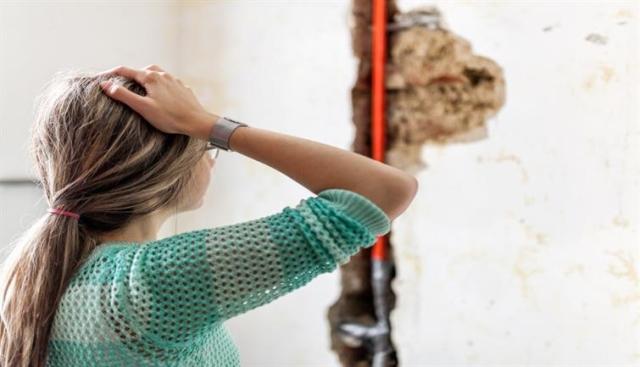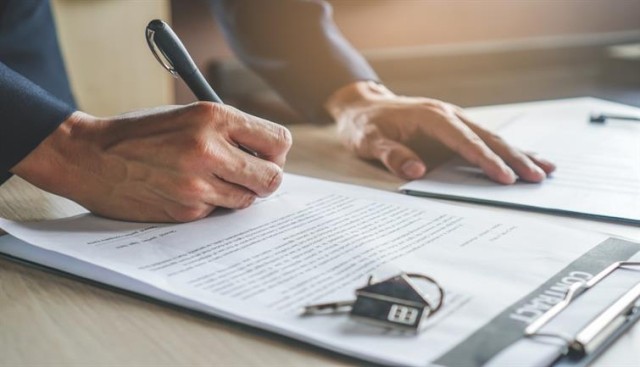Home repair is a part of every renter’s – and landlord’s – life. In time, many parts of your home will wear out, break, or need some TLC. And things happen. Renters break stuff – usually on accident – and outside factors may inflict some damage of their own. Generally, if you’re a renter and you break something, you pay to repair it. If something breaks not because of you, such as because of age, the landlord is typically responsible. But what about the minor repairs that are inexpensive or simple enough to do yourself?
Before calling the landlord or property management for every minor maintenance or repair issue, consider who should really be handling those repairs. As a renter, you might be better off just handling some of these items yourself.
Check your lease agreement for who’s responsible
Before you start stressing about the dripping faucet or the squeaky bedroom door, check your rental agreement. In most cases, your lease agreement should state which repairs are the landlord’s responsibility and which may be yours.
If your lease isn’t clear about who should handle different types of repairs, consider whether the problem is a genuine issue or a minor annoyance. For instance, if your entry door won’t lock properly and never has, your landlord should fix it, as it concerns your safety and security.
If your leaky faucet keeps you up at night, the landlord may be willing to fix it, especially if they pay the water bill. It doesn’t hurt to submit a written repair request for more minor issues like this, especially if you’re unsure as to who’s at fault.
Check your state’s laws
Tenants have a right to habitable living conditions in every state. For instance, a functional heat system is a requirement. If your heating unit breaks down, your landlord must repair it, no matter where in the United States you live.
If your repair issue is potentially difficult or costly and isn’t an obvious landlord responsibility, check your state laws for more clarity.
Replace what you can
Minor things such as burnt-out light bulbs or mildew in the shower are typically the tenant’s responsibility, even though many apartment communities will take care of such maintenance requests. Even if this isn’t spelled out in your agreement, it’s usually easier to deal with the issue yourself than to contact the landlord over a minor annoyance.
If a screw is missing from the deadbolt hardware, or your home’s air filter is past its prime, replace it yourself. A stain on the carpet near the front door is also easier to deal with yourself since your landlord or property management company usually isn’t responsible for cleaning-related issues.
On the other hand, if there’s prominent mold in your bathroom or visible water damage that seems to be coming from the unit above you, it’s not your responsibility. But you should report issues like this immediately so they don’t get worse.
What issues are always the tenant’s responsibility?
Certain maintenance issues are always your responsibility, unless your lease states otherwise. It’s up to you to replace light bulbs and batteries in smoke detectors, and to keep the appliances clean and in working order (outside of equipment failures) even if they belong to the landlord or property company.
You should always treat a rental – whether it’s a house or an apartment – as if you bought it yourself. Your landlord or property management company will expect the unit to be in the same condition it was in before you moved in (besides normal wear and tear). Also, by keeping your rental clean, you’ll avoid things like mold and mildew that can grow into larger infestations.
Don’t go DIY
Even if you have the skills of an HGTV presenter or you’re an actual general contractor, don’t make major repairs yourself without the landlord’s consent, it could hurt you in the long run. Patching a nail hole in a wall and repainting the spot to match the wall is fine; renovating your back porch is not. While it is sometimes common practice for landlords to credit repairs made by the tenant towards their monthly rent, this isn’t a stipulation you’ll find in your lease, so you should always check with your landlord before you make any repairs. The landlord may prefer to use their own contractor or do the work themselves and send you the bill (if you were the one responsible for the damage). This ensures the work done meets your landlord’s standards.
In a nutshell, handle simple things such as light bulbs and cleaning yourself. Consult your rental agreement for anything that seems like a gray area. Major issues such as heat and electricity are definitely up to your landlord or property management company to fix. Again, some of these maintenance stipulations could change depending on if you live in a house that’s owned by an independent landlord or a multi-unit apartment complex with on-site maintenance. So always read your lease agreement thoroughly. Hope this helps, renters!






